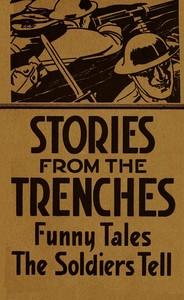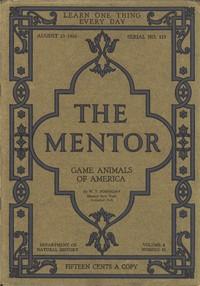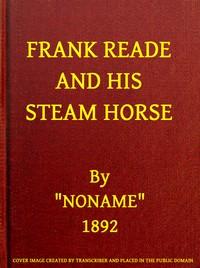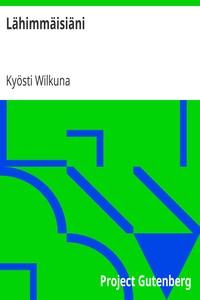Read this ebook for free! No credit card needed, absolutely nothing to pay.
Words: 30240 in 6 pages
This is an ebook sharing website. You can read the uploaded ebooks for free here. No credit cards needed, nothing to pay. If you want to own a digital copy of the ebook, or want to read offline with your favorite ebook-reader, then you can choose to buy and download the ebook.


: Stories from the Trenches: Humorous and Lively Doings of Our 'Boys Over There' by Case Carleton B Carleton Britton - World War 1914-1918 Anecdotes
THE LIFE OF THOMAS PAINE
WITH A HISTORY OF HIS LITERARY, POLITICAL AND RELIGIOUS CAREER IN AMERICA FRANCE, AND ENGLAND
THE LIFE OF THOMAS PAINE.
Dumas' hero, Dr. Gilbert , an idealization of Paine, interprets his hopes and horrors on the opening of the fateful year 1793. Dr. Gilbert's pamphlets had helped to found liberty in the New World, but sees that it may prove the germ of total ruin to the Old World.
"A new world," repeated Gilbert; "that is to say, a vast open space, a clear table to work upon,--no laws, but no abuses; no ideas, but no prejudices. In France, thirty thousand square leagues of territory for thirty millions of people; that is to say, should the space be equally divided, scarcely room for a cradle or a grave for each. Out yonder, in America, two hundred thousand square leagues for three millions of people; frontiers which are ideal, for they border on the desert, which is to say, immensity. In those two hundred thousand leagues, navigable rivers, having a course of a thousand leagues; virgin forests, of which God alone knows the limits,--that is to say, all the elements of life, of civilization, and of a brilliant future. Oh, how easy it is, Billot, when a man is called Lafayette, and is accustomed to wield a sword; when a man is called Washington, and is accustomed to reflect deeply,--how easy is it to combat against walls of wood, of earth, of stone, of human flesh! But when, instead of founding, it is necessary to destroy; when we see in the old order things that we are obliged to attack,--walls of bygone, crumbling ideas; and that behind the ruins even of these walls crowds of people and of interests still take refuge; when, after having found the idea, we find that in order to make the people adopt it, it will be necessary perhaps to decimate that people, from the old who remember to the child who has still to learn; from the recollection which is the monument to the instinct that is its germ--then, oh then, Billot, it is a task that will make all shudder who can see beneath the horizon.... I shall, however, persevere, for although I see obstacles, I can perceive the end; and that end is splendid, Billot. It is not the liberty of France alone that I dream of; it is the liberty of the whole world. It is not the physical equality; it is equality before the law,--equality of rights. It is not only the fraternity of our own citizens, but of all nations.... Forward, then, and over the heaps of our dead bodies may one day march the generations of which this boy here is in the advanced guard!"
Paine's outlawry, announced by Kersaint in Convention, January 1st, was more eloquent for wrath than he for clemency. Under such menaces the majority for sparing Louis shrank with the New Year; French pride arose, and with Danton was eager to defy despots by tossing to them the head of a king. Poor Paine found his comrades retreating. What would a knowledge of the French tongue have been worth to this leading republican of the world, just then the one man sleeplessly seeking to save a Kings life! He could not plead with his enraged republicans, who at length overpowered even Brissot, so far as to draw him into the fatal plan of voting for the King's death, coupled with submission to the verdict of the people. Paine saw that there was at the moment no people, but only an infuriated clan. He was now defending a forlorn hope, but he struggled with a heroism that would have commanded the homage of Europe had not its courts been also clans. He hit on a scheme which he hoped might, in that last extremity, save the real revolution from a suicidal inhumanity. It was the one statesmanlike proposal of the time: that the King should be held as a hostage for the peaceful behavior of other kings, and, when their war on France had ceased, banished to the United States.
On January 15th, before the vote on the King's punishment was put, Paine gave his manuscript address to the president: debate closed before it could be read, and it was printed, He argued that the Assembly, in bringing back Louis when he had abdicated and fled, was the more guilty; and against his transgressions it should be remembered that by his aid the shackles of America were broken.
He reminds the Convention that the king had two brothers out of the country who might naturally desire his death: the execution of the king might make them presently plausible pretenders to the throne, around whom their foreign enemies would rally: while the man recognized by foreign powers as the rightful monarch of France was living there could be no such pretender.
"It has already been proposed to abolish the penalty of death, and it is with infinite satisfaction that I recollect the humane and excellent oration pronounced by Robespierre on the subject, in the constituent Assembly. Monarchical governments have trained the human race to sanguinary punishments, but the people should not follow the examples of their oppressors in such vengeance. As France has been the first of European nations to abolish royalty, let her also be the first to abolish the punishment of death, and to find out a milder and more effectual substitute."
The fire-breathing Mountain felt now that its supremacy was settled. It had learned its deadly art of conquering a thinking majority by recklessness. But suddenly another question was sprung upon the Convention: Shall the execution be immediate, or shall there be delay? The Mountain groans and hisses as the question is raised, but the dictation had not extended to this point, and the question must be discussed. Here is one more small chance for Paine's poor royal client. Can the execution only be postponed it will probably never be executed.
"Death by a small majority of Fifty-three. Nay, if we deduct from the one side, and add to the other, a certain Twenty- six who said Death but coupled some faintest ineffectual surmise of mercy with it, the majority will be but One." See also Paine's "M?moire, etc.. ? Monroe."
Unfortunately Marat, whose thirst for the King's blood is almost cannibalistic, can read on Paine's face his elation. He realizes that this American, with Washington behind him, has laid before the Convention a clear and consistent scheme for utilizing the royal prisoner. The king's neck under a suspended knife, it will rest with the foreign enemies of France whether it shall fall or not; while the magnanimity of France and its respect for American gratitude will prevail. Paine, then, must be dealt with somehow in this new debate about delay.
Free books android app tbrJar TBR JAR Read Free books online gutenberg
More posts by @FreeBooks

: The Mentor: Game Animals of America Vol. 4 Num. 13 Serial No. 113 August 15 1916 by Hornaday William T William Temple - Wildlife conservation United States; Game and game-birds United States The Mentor


: Frank Reade and His Steam Horse by Senarens Luis - Science fiction; Western stories; American fiction 19th century; Adventure stories; Dime novels; Inventors United States Fiction; Popular literature United States





